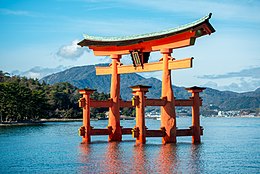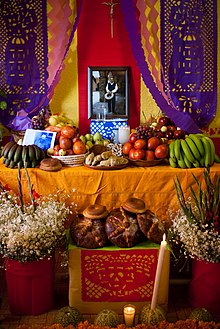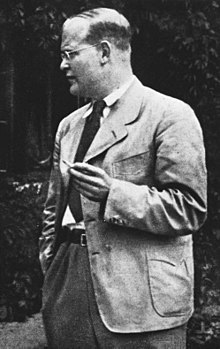Portal:Religion
The Religion Portal
Religion is a range of social-cultural systems, including designated behaviors and practices, morals, beliefs, worldviews, texts, sanctified places, prophecies, ethics, or organizations, that generally relate humanity to supernatural, transcendental, and spiritual elements—although there is no scholarly consensus over what precisely constitutes a religion. Different religions may or may not contain various elements ranging from the divine, sacredness, faith, and a supernatural being or beings. (Full article...)
 Vital article
Vital article

Shinto (Japanese: 神道, romanized: Shintō) is a religion originating in Japan. Classified as an East Asian religion by scholars of religion, its practitioners often regard it as Japan's indigenous religion and as a nature religion. Scholars sometimes call its practitioners Shintoists, although adherents rarely use that term themselves. There is no central authority in control of Shinto, with much diversity of belief and practice evident among practitioners. (Full article...)
 Did you know (auto-generated)
Did you know (auto-generated)
- ... that Gamaliel's principle has been used to support religious pluralism and reforms within religious groups?
- ... that the Grave with the Hands commemorates a married couple, divided by society and religion, with hands clasped over a cemetery wall after death?
- ... that Gherardo Gambelli, the incoming archbishop of Florence, served as a prison chaplain in Chad for over a decade?
- ... that a religious community is a group of people who practice the same religion, but do not have to live together?
- ... that Catherine de Parthenay, a 16th-century Huguenot leader, was a member of "a highly successful network of information" during the French Wars of Religion?
- ... that Freedom of Religion South Africa filed an unsuccessful lawsuit to keep child spanking legal?
The Xá Lợi Pagoda raids (Vietnamese pronunciation: [saː˦˥ ləːj˨˩˨] SAW-LIE) were a series of synchronized attacks on various Buddhist pagodas in the major cities of South Vietnam shortly after midnight on 21 August 1963. The raids were executed by the Army of the Republic of Vietnam Special Forces under Colonel Lê Quang Tung, and combat police, both of which took their orders directly from Ngô Đình Nhu, younger brother of the Roman Catholic President Ngô Đình Diệm. Xá Lợi Pagoda, the largest pagoda in the South Vietnamese capital, Saigon, was the most prominent of the raided temples. Over 1,400 Buddhists were arrested, and estimates of the death toll and missing ranged up to the hundreds. In response to the Huế Vesak shootings and a ban on the Buddhist flag in early May, South Vietnam's Buddhist majority rose in widespread civil disobedience and protest against the religious bias and discrimination of the Catholic-dominated Diệm government. Buddhist temples in major cities, most prominently the Xá Lợi pagoda, became focal points for protesters and assembly points for Buddhist monks from rural areas. (Full article...)



































































